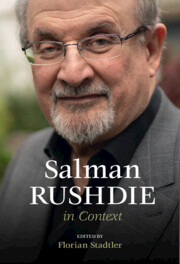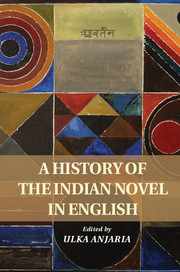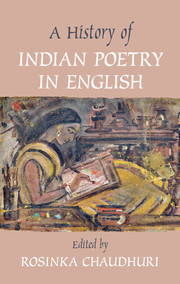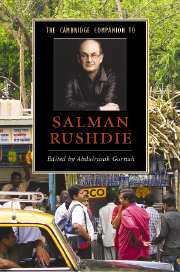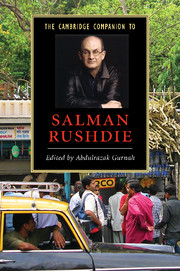Salman Rushdie in Context
Salman Rushdie in Context discusses Rushdie's life and work in the context of the multiple geographies he has inhabited and the wider socio-cultural contexts in which his writing is emerging, published and read. This book reveals the evolving political trajectory around transnationalism, multiculturalism and its discontents, so prominently engaged with by Salman Rushdie in relation to South Asia, its diasporas, Britain, and the USA in the late twentieth and early twenty-first century. Focused on the aesthetic, biographical, cultural, creative, historical and literary contexts of his works, the book reveals his deep engagement with processes of decolonization, emergent nationalisms in South Asia, Europe and the USA, and diasporic identity constructions and how they have been affected by globalisation. The book traces how, through his fiction and non-fiction, Rushdie has profoundly shaped the discussion of important questions of global citizenship and migration that continue to resonate today.
- Provides thematic and conceptual overviews of Salman Rushdie and his works
- Includes inter-disciplinary perspectives that show readers the multi-directional ways in which Rushdie's works can be read
- Focuses on aesthetic, biographical, cultural, creative, historical contexts of Salman Rushdie's work, introducing readers to new critical approaches
Reviews & endorsements
‘… immaculately edited and introduced by Florian Stadtler … In what sometimes feels like a saturated field, this is a book that has the potential to generate new excitement about the author.’ Hayley G. Toth, Journal of Postcolonial Writing
Product details
March 2023Adobe eBook Reader
9781009085113
0 pages
This ISBN is for an eBook version which is distributed on our behalf by a third party.
Table of Contents
- Introduction: Rushdie's contexts – contextualizing Rushdie Florian Stadtler
- Part I. Life:
- 1. Salman Rushdie, biography and autobiography Pavan Kumar Malreddy
- 2. Salman Rushdie and the Fatwa Anshuman A. Mondal
- 3. Archival Rushdie Sam Goodman
- 4. Salman Rushdie as public intellectual Ruvani Ranasinha
- Part II. Literary and Creative Contexts:
- 5. Salman Rushdie and the Urdu tradition Amina Yaqin
- 6. Art-historical magic realism and Rushdie's twenty-first century politics Felicity Gee
- 7. Salman Rushdie and intertextuality Joel Kuortti
- 8. Salman Rushdie and visual art and culture Ana Cristina Mendes
- 9. Rushdie, sound and the auditory imagination Daniel O'Gorman
- Part III. Historical and Cultural Contexts:
- 10. Salman Rushdie and history Wendy Singer
- 11. Religious and ideological mythologies in Salman Rushdie's novels Manav Ratti
- 12. Revisiting the city in Rushdie's fiction Stuti Khanna
- 13. Nationalism and transnationalism in Salman Rushdie's novels Birte Heidemann
- 14. Rushdie and globalization Ágnes Györke
- 15. Salman Rushdie and diasporic identities Jenni Ramone
- 16 Rushdie and secularism Florian Stadtler
- 17. Orientalism, terrorism and counterinsurgency in Salman Rushdie's novels Stephen Morton
- 18 Salman Rushdie's upwardly mobile, globally migrating middle classes Nilufer E. Bharucha
- 19. Scheherazade and her cousins: Rushdie's women handcuffed to contexts Feroza Jussawalla
- 20. Filmi contexts: Rushdie and cinema Florian Stadtler
- 21. Salman Rushdie and world-historical capitalism Treasa De Loughry
- 22. The Anthropocene and ecological limits in the works of Salman Rushdie Robert P. Marzec
- Part IV. Critical Theoretical Contexts:
- 23. Salman Rushdie and postcolonialism Harish Trivedi
- 24. Salman Rushdie and cosmopolitanism John Clement Ball
- 25 Salman Rushdie and postmodernism Peter Morey
- Part V. Reception, Criticism and Adaption:
- 26. Salman Rushdie's audiences, reception and the literary market Ursula Kluwick
- 27. Adapting Rushdie: radio, screen and stage Florian Stadtler.

